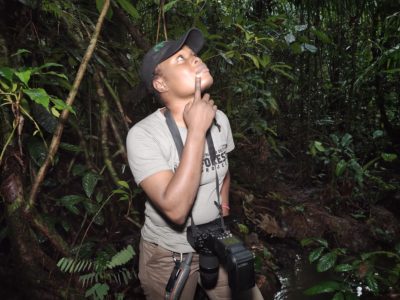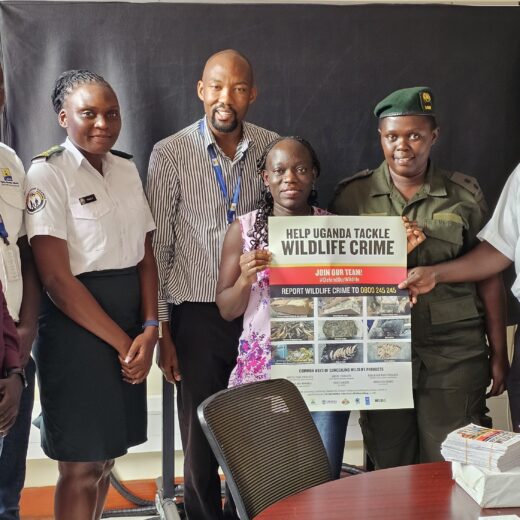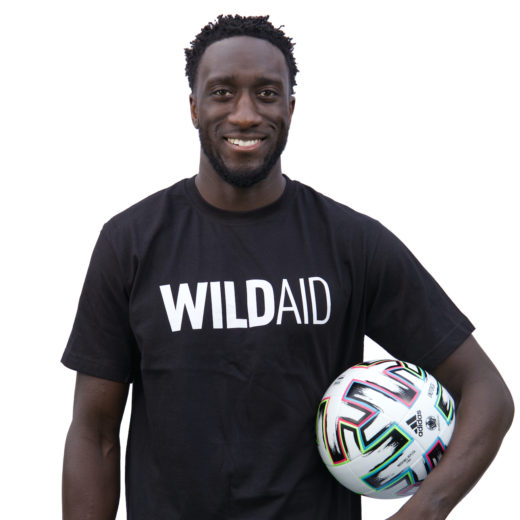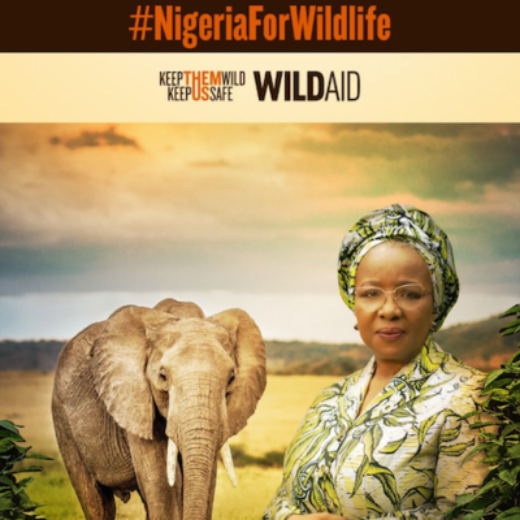
“What I have achieved today is the result of persistence and doggedness. Women are not ordinarily respected…if we want to be heard we have to work ten-fold harder to get it.”
This International Women’s Day and throughout March, WildAid is shining a spotlight on some of the incredible women in conservation who are working tirelessly to protect wildlife.
Rachel Ikemeh is the Project Director for the SW/Niger Delta Forest Project which has been working to protect the critically endangered Niger Delta red colobus monkey and populations of the Nigeria-Cameroon chimpanzee in Nigeria’s southwest since 2013. Rachel’s work involves promoting the conservation of these flagship species alongside other species that share the same habitat, including monkeys, elephants, hornbills and pangolins. Thanks to her efforts, Ekiti State recently established a conservation area within Ise Forest Reserve to protect the chimps and safeguard their habitat.
Over the past couple of years, Rachel has transitioned from a conservation researcher to a conservation manager, helping develop project concepts and leading a multi-disciplinary team to tackle crises, advocate for policies and campaign for the protection of wildlife species. She has always been passionate about protecting wildlife because wildlife in turn protects people through the vital role it plays in the ecosystem. Rachel warns that the consequences of not conserving wildlife are beginning to unravel with increased occurrences of natural disasters that we have witnessed in the last decade.
WildAid: What inspired you to follow a career in conservation?
Ikemeh: Interestingly, I got in to conservation by sheer coincidence. In 2005, I obtained my first degree in Public Administration, and as a fresh graduate desperately looking for employment, I stumbled on a vacancy ad for interns with the Nigerian Conservation Foundation. I was selected alongside five others for the internship position. Ever since, there’s been no turning back for me. I had become exposed to the fundamental and very complex issues of human-nature interactions, the peculiar challenges facing Nigeria as a country, in fact, I was confronted with realities I felt were too close to ‘home’ and I couldn’t turn my back thereafter. So you ask, what inspires me? It’s funny to say it but then ‘it is seeing the problem first-hand’. I’m inspired by the possibility that I could ‘fix the problem’ or at the very least contribute to the solutions.
WildAid: What is the best part of your job?
Ikemeh: Being in the field! It is so refreshing being in nature, completely cut off from the hustle and bustle of city life – no phone calls, and sometimes no computer. There is probably nothing that is as therapeutic as nature, listening to sounds of night life in the field camp and living a very basic and simple life for the days I get to be out there is the most satisfying natural experience I have ever known. I have sometimes found a spiritual connection of some sort too. My job is like a free ticket to having this sort of wonderful experience. Probably, one of the reasons I have remained in conservation despite the challenges I have had to confront.
WildAid: If COVID-19 has taught us anything it is that the well-being of wildlife and humans is inextricably connected. Can you give us an experience from your life/career that illustrates this?
Ikemeh: The linkage between human well-being and that of wildlife has often been overlooked, but let me tell you something, the indigenous people who live adjacent to forests know this interconnectedness too well. For example, in all the time I have spent working in the forest, whenever I or any member of my team come down with a fever or any sickness in the forest, we would often find the medicine in some leaf, bark or root of a plant in the forest. Another example is when you visit remote communities located deep in the creeks of the Niger River Delta, these people have no sewage or means of disposing of their fecal waste except in the river and they will take water from that same river to bath, cook and drink. While this ordinarily may sound like a deplorable condition for anyone to live in, the fishes in the river feed on their fecal waste cleaning up the river immediately after them. If not for these fishes, we would have had an epidemic from poor sanitation to deal with in these communities.
WildAid: What do you think are some of the challenges women in conservation face today?
Ikemeh: I honestly think conservation work in itself is very challenging and to add gender issues to the mix can be downright daunting. There are many unacknowledged barriers placed on a woman’s path and it’s not even an African thing. The problem of relegating women is global and cuts across every fabric of human society. In August 2020, Jill Tiefenthaler became the first woman CEO of National Geographic Society in its 132 years history and we are speaking of an organization that has brought us insights into our planet like no other organization ever has.
So imagine what the challenges are like in Africa. Women are simply not given chances or opportunities like their male counterparts. Like that’s not enough, women face threats of sexual harassment and violence at every turn, whether at home, at play or in the work place. When I started leading conservation efforts about 8 years ago, advocating for wildlife conservation at the corridors of power and authority i.e. in government circles, it seemed an impossible task because I was disregarded at first sight – and this is just putting it mildly. Whenever I approach local communities with the conservation message, I am perceived as a woman who has probably failed at living a normal life and that’s probably why I have taken on the “ridiculous” task of looking after the well-being of animals in the jungle. What I have achieved today is the result of persistence and doggedness. Women are not ordinarily respected…if we want to be heard we have to work ten-fold harder to get it.
WildAid: What can be done to provide more support to women working in conservation?
Ikemeh: Women are nurturing by nature, and conservation is a profession that nurtures nature – species and habitat. If women are given the chance to express themselves more with room to be themselves, then we will see more women in conservation doing what they are naturally gifted to do. There needs to be a bottom up synergy of support for the woman; what I mean is that even from home, the woman needs to be encouraged by her parents, siblings and/or spouse. A woman does not need to be ‘boxed in’ in a perceived role or perceived as abnormal when she pursues a ‘non-traditional’ career path. Leaders at every sphere also need to value a woman’s voice and provide opportunities for her to lead. I like that our current President has consistently given leadership positions to women at the Federal Ministry of Environment and we have all seen the remarkable difference a woman can make in such positions, as we have seen in Mrs. Amina Mohammed (Deputy Secretary-General of the United Nations) and Mrs. Sharon Ikeazor (Nigeria Minister of State for Environment).
WildAid: What advice would you give to girls who are thinking of following a career in conservation?
Ikemeh: The only limit you will ever know is the one you set for yourself. There is no limit to what you can do or who you can be, but ensure that whatever you choose to be or do, you are leaving the world better than you met it. Don’t play small and don’t be intimidated irrespective of your background. So, value yourself because you can’t give what you don’t have. Your gender is a plus not a negative. Look around you, this is a good time to be a woman. Women are rising in every sphere of influence, so if you see a ‘glass ceiling’ on your way go ahead and break it. Be encouraged by the women today showing us all that it is possible to be well-rounded. Be encouraged by the current Director-General of the World Trade Organization – Dr. Ngozi Okonjo-Iweala, she rose to the top of the ladder many times over, so by every means a trailblazer yet a wife and mother. Be true to yourself and please don’t follow this career path if you are not passionate about it.
Help raise support for women in conservation. Join the “Let’s all choose to challenge” movement on social media. Strike the #ChooseToChallenge pose with your one hand high to show your commitment to choose to challenge inequality, call out bias, question stereotypes and help forge an inclusive world. Then tag other women supporting/working in conservation in your post.
Stay in touch and get the latest WildAid updates.
SIGN UP


